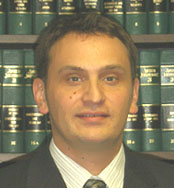

| THE SAINT PAUL PERSONAL INJURY ATTORNEY |
 |
 |
|
MUNICIPAL - state building code preempts enacting local building codes, not habitability standardsThis opinion will be unpublished andmay not be cited except as provided by Minn. Stat. § 480A.08, subd. 3 (2006). STATE OF MINNESOTA IN COURT OF APPEALS A06-188 Augusta Pierson, petitioner, Appellant, vs. State of Minnesota, Respondent. Filed May 1, 2007 Affirmed Hudson, Judge Hennepin County District Court File No. 93104983 Augusta Pierson, OID #111114, MCF – Rush City, 7600 – 525 Street, Rush City, Minnesota 55069 (pro se appellant) Lori Swanson, Attorney General, 1800 Bremer Tower, 445 Minnesota Street, St. Paul, Minnesota 55101-2134; and Michael O. Freeman, Hennepin County Attorney, Thomas A. Weist, Assistant County Attorney, C-2000 Government Center, Minneapolis, Minnesota 55487 (for respondent) Considered and decided by Hudson, Presiding Judge; Randall, Judge; and Dietzen, Judge. U N P U B L I S H E D O P I N I O N HUDSON, Judge Appellant Augusta Pierson challenges the district court’s denial of his petition for postconviction relief. Because the record shows that appellant is not entitled to relief, we affirm. FACTS In 1994, a jury convicted appellant Augusta Pierson of criminal sexual conduct in the fourth degree in violation of Minn. Stat. §§ 609.345, subds. 1(b), 2, .101, subd. 2 (1992). This was appellant’s second conviction of criminal sexual conduct. The district court sentenced appellant as a dangerous offender; appellant received an executed sentence of 88 months. The district court did not impose a term of conditional release. Before appellant’s release from prison, the Department of Corrections (DOC) sent the district court a letter inquiring whether the district court intended to impose a term of conditional release. This letter did not receive an immediate response. But after appellant left prison on supervised release, the district court issued an order imposing a ten-year term of conditional release. The district court did not hold a hearing before issuing the order. After violating the conditions of his release, appellant filed a postconviction petition arguing that the imposition of the term of conditional release violated his right to due process. The district court summarily denied appellant’s petition. This appeal follows. D E C I S I O N Appellant challenges the district court’s denial of his petition for postconviction relief without first holding an evidentiary hearing. Appellate courts review a postconviction proceeding to determine whether there is sufficient evidence to support the findings and whether the district court abused its discretion. State v. Christopherson, 644 N.W.2d 507, 509–10 (Minn. App. 2002), review denied (Minn. July 16, 2002). A petitioner seeking postconviction relief has the burden of proving by a preponderance of the evidence facts that warrant reopening the case. Minn. Stat. § 590.04, subd. 3 (2006). A postconviction hearing is required unless the petition and files and records conclusively show that the petitioner is entitled to no relief. Minn. Stat. § 590.04, subd. 1 (2006). Under Minnesota statutory law in effect at the time of appellant’s conviction, a ten-year term of conditional release shall be imposed upon persons convicted of criminal sexual conduct who have prior convictions for the same or similar offense. Minn. Stat. § 609.346, subd. 5(a) (Supp. 2003). Imposition of the term is mandatory and cannot be waived. State v. Humes, 581 N.W.2d 317, 319–20 (Minn. 1998). Failure to impose this mandatory term of conditional release renders a sentence unauthorized. Id. at 321. A district court may at any time correct an unauthorized sentence. Minn. R. Crim. P. 27.03, subd. 9; Humes, 581 N.W.2d at 321. Thus, the district court had jurisdiction to impose the conditional-release term. However, “due process concerns are implicated when a defendant’s sentence is corrected.” State v. Calmes, 632 N.W.2d 641, 645 (Minn. 2001). Due process ensures that “sentencing proceedings observe the standards of fundamental fairness essential to justice.” Id. (quotation omitted). In State v. Wukawitz, the supreme court held that modification of a sentence to add a term of conditional release violates a defendant’s due-process rights if the modified sentence exceeds the maximum sentence set forth in a plea agreement. 662 N.W.2d 517, 526 (Minn. 2003). In Martinek v. State, this court held that a district court lacks jurisdiction to impose a conditional-release term after a sentence has expired. 678 N.W.2d 714, 718 (Minn. App. 2004). Expiration “operates as a discharge that bars further sanctions for a criminal conviction.” Id. (quotation omitted). In Calmes, the supreme court held that due process limits the district court’s power to impose a conditional-release term if to do so would violate a defendant’s crystallized expectation in the finality of his or her sentence. 632 N.W.2d at 645. But the supreme court held that failure to hold a hearing before imposing a mandatory term of conditional release did not violate due process absent questions about “the validity of a plea agreement in light of the correction, or the length of the conditional release term.” Id. at 649–50. Here, contrary to appellant’s contention, there was no plea agreement. Rather, a jury convicted appellant. In addition, the record shows that appellant’s sentence had not expired when the district court imposed the term of conditional release; appellant was on supervised release at the time. Moreover, appellant’s claim that he had a crystallized expectation of finality in his sentence is undercut by the fact that he was on supervised release when the term was imposed; thus, he remained in the custody of the commissioner of corrections despite being out of the institution. Calmes, 632 N.W.2d at 647–48 (holding that a substantial passage of time before modification, or the fact that a defendant is on supervised release at the time of modification, are non-determinative factors that courts can consider when determining whether an expectation of finality exists). In addition, the supreme court has stated that because citizens are presumed to know the law, its prior rulings prevent the development of a “crystallized expectation of finality in a sentence that did not include a mandatory and nonwaivable condition.” Id. at 648. Thus, as a matter of law, appellant could not have a crystallized expectation of finality in his unauthorized sentence. We also note that appellant did not object to the imposition of the term of conditional release until after he violated the conditions. This is further evidence that appellant did not harbor an expectation of finality in a sentence that was free of a conditional-release term. If, as appellant claims, such an expectation existed, appellant would likely have contested the term of conditional release at its imposition. Because the record shows that appellant is not entitled to relief, the district court did not err by summarily denying appellant’s petition for postconviction relief. Affirmed. Dated: _____________________ _______________________________________ Judge Natalie E. Hudson |
|||||||||||||||||||||||||||||||||||||||||||||||||||||||||||||||||||||||
| By visiting this page or clicking the "submit" button above, you agree that you have read and accept this "disclaimer". |
||||||||||||||||||||||||||||||||||||||||||||||||||||||||||||||||||||||||
| Copyright ©
Michael E. Douglas, Attorney at Law, Saint Paul MN. All Rights
Reserved. Minnesota Lawyer representing Personal Injury, Car / Auto Accident, Workers Compensation, Medical Malpractice, Social Security Disability claims. Dedicated to Injured Workers, Victims of Negligence, Car Accidents, Victims of Fraud, and those in need of legal assistance. |